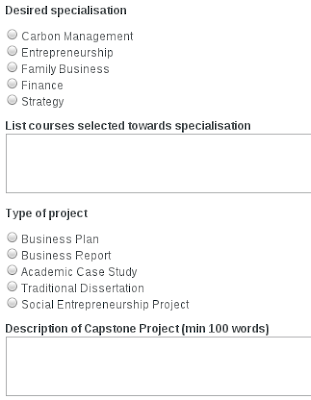Housing
- Don't underestimate the difficulty of getting "Good" housing in Edinburgh.
- An informal poll (2011-2012) that I conducted found that those that did find it took at least 3 weeks, and spent around £600/month ($1000/mo.) to get their own place. You can spend less, but you get much less.
- A common neighborhood for students is Marchmont, but I was more impressed by the St. Leonards area bordering Holyrood. Others, more inclined to shop may prefer Stockbridge.
- University accomodation that I viewed at Richmond place was unattractive and featured a large shared kitchen. It cost on the order of £400/month for a small cell containing bed, small bathroom with shower.
- The best strategy is to find a friend in Edinburgh, and stay with them while searching on the ground. Walk around to places that you want to live and call the numbers on cards posted. There are many nice places, but also many, many poor places, particularly in the city center.
- Most places will come furnished, but check anyway.
- There is no Craigslist for Edinburgh :(
- "Gumtree" should be avoided if possible.
- Start search in July or early August.
- See [this post] for a list of letting agencies.
- Bikes are stolen frequently from Edinburgh Stairwells. Lock your bike on campus if possible, but if not, use strong locks following best practices.
- From Lothian & Borders (Police) statistics that I have looked at, bike theft is only increasing year on year -- don't become a statistic!
- I recommend you bring or buy your own desktop.
- If you bring your desktop from the US, make sure to switch the transformer to 230Vac on the back
- Don't plug in PC-speakers from the US (or other lower-voltage countries) into UK outlets! (Low voltage design + High voltage = explosion)
- You can buy an AC-AC converter, but probably better to just order UK spec ones from Amazon.
- You do not pay this tax if a full-time student. Ignore any notices, but visit [this site] to apply for an exemption.
- You will have to go in to show your student ID to verify your online exemption application.
- There are two main campuses, "Central" (Where McEwan Hall and the Teviot Student Union are) and Kings Buildings, 1 mile South. There is a free connector bus--See [this page]
- The bus will say "Special Service" and you must show your Student ID to ride.
- Ignore the closely time City buses which are NOT free.
- If you like a party, then the August Festival calendar is for you. For those who prefer quiet study, be prepared to give the Central campus a wide berth during the month of August.
- Edinburgh is developing biking culture. There are a few mainstays:
- BikeStation is like Mike's Bikes for Scotland.
- Spokes is the local advocacy group - very well run.
- Innertube shows the basic city trail layout.
















